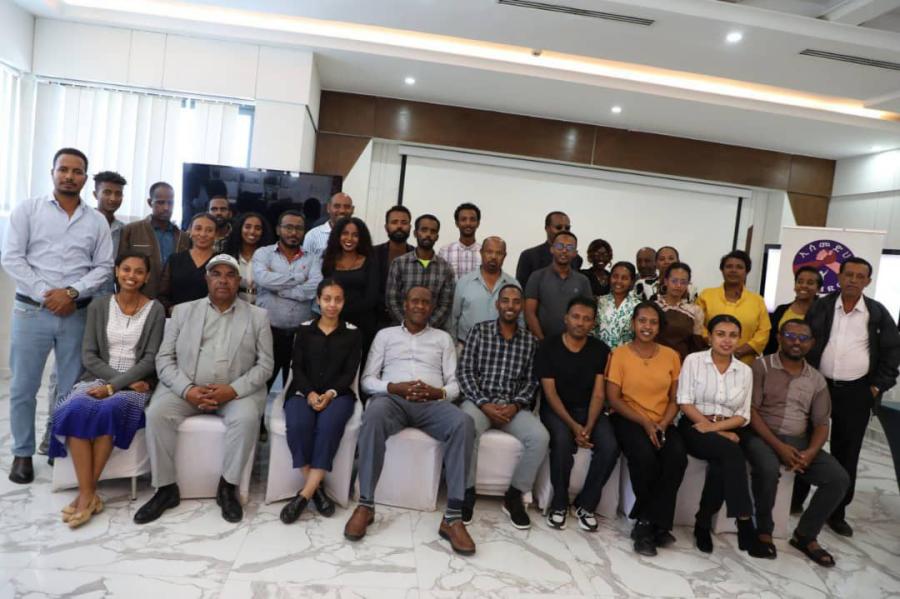At the turn of the 20th century, the Burji community arrived in Kenya from Yavelo Province, Ethiopia, courtesy of the then-commissioner of the Marsabit District in northern Kenya. To encourage farming in his administrative area and feed the colonists and inhabitants -the Borana, Rendille and Gabra- who were predominantly pastoralists, the British colonial official decided to ask his Ethiopian counterpart to send a few Burjis, renowned for their farming and entrepreneurial skills, to initiate farming in Marsabit. Experience had shown that the local communities could not rely exclusively on livestock as their sole source of livelihood. The British Consul at Mega in Ethiopia agreed to the request and sent a few Burji to Kenya, where an administrative post was set up in Marsabit to oversee the growing of crops.
But the British action, well intentioned as it may have been, helped create a minority community in Marsabit that is now suffering marginalization. The Burji numerical strength is too inferior to counter discrimination by Kenyan authorities or the dominant neighboring communities who still consider the Burji to be alien in the region.
The 1978 National Housing and Population Census deliberately eliminated the Burji as a distinct people identifiable by history and culture by coding their ethnicity as “other.” In the 1989 National Housing and Population Census the community was given recognition and coded, only to be arbitrarily dropped again in 1999 for unexplained reasons. That the government has institutionalized discrimination against the Burji community is indisputable.
The history of Kenya in the last century is characterized with systematic marginalization of the ethnic minorities and indigenous communities culminating in injustices, inequalities, and even some denial of constitutional recognition.
The precedent upon which these and other exclusionary government policies were built was the 1969 post-independence inaugural development paper, “Sessional Paper Number 10 On African Socialism and its Application in Kenya,” which divided regions upon the punitive colonial legacy of high-potential and low-potential area. This dichotomy set the pace for economic marginalization of the Burjis, who were in essence farmers occupying pastoralist land.
“One of the problems was to decide how much priority we should give in investing in less developed provinces,” the paper states. “To make the economy grow as a whole as fast as possible, development money should be invested in areas where it will yield the highest increase in net output.” According to Institute of Economic Affairs director Duncan Okelo, this trend favored areas with abundant natural resources, good land and rainfall, transport and power facilities, and people receptive to and active in development; it excluded least-endowed areas.
This scenario is in blatant disregard of the United Nations convention on the Rights of Persons Belonging to National or Ethnic, Religious and Linguistic Minorities Article 1 which provides that states protect the existence of ethnic, cultural, religious, and linguistic minorities within their respective territories and encourage the promotion of that identity. That article further calls for the state to adopt appropriate legislation and other measures to achieve this end. According to Article 2 of the International Labor Organization Convention on Indigenous and Tribal Peoples, the government has the responsibility for developing, with the participation of the peoples concerned, coordinated and systematic action to protect the rights of these peoples and to guarantee respect for their integrity.
Elisha Godana, a member of the Burji community at the ongoing National Constitutional Review Conference in Kenya, said that the government’s failure to recognize the Burji almost kept the Burji from being invited to the constitutional conference. Only when the former assistant minister of trade raised an alarm were the Burji allowed observer status at the conference. Without his action, they would have been excluded from the national consciences at this crucial point of writing Kenya’s future.
Establishment of a bicameral house including a house of nationalities, as envisioned in the proposed draft bill of the constitution, will give the Burji and other small minority groups representation to help mainstream their issues into the national development plan. The house of nationalities will further promote national unity and address the issue of historical and contemporary injustices for communities like the Burji, adequately putting these groups on the same pedestal with other Kenyans in terms of development and legislative recognition.
“Human Rights are not to be surrendered to the government, they define the relationship between the government and the state and as such define the special treatment of the minorities and the marginalized communities,” observes Buji leader Elisha Godana. Such precept is in line with the universally recognized standards of human rights, which, he said, should apply equally to the Burjis and to other communities in Kenya.
Abdullah Boru is a journalist specializing in policy issues that affect minority communities and their remedial measures. He is also a reporter for the magazine The Marginalised.

